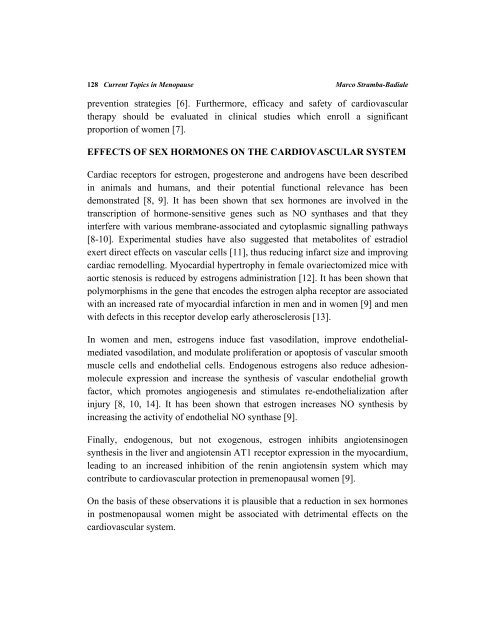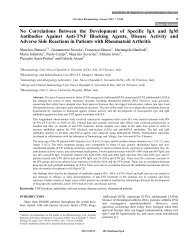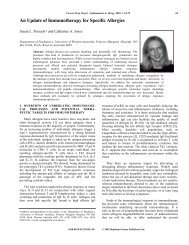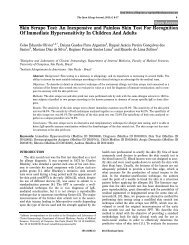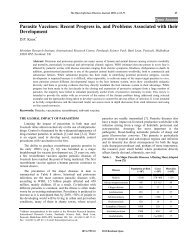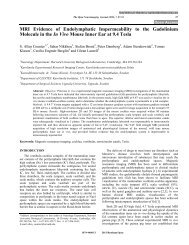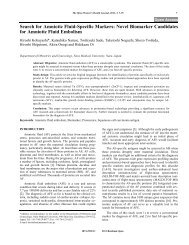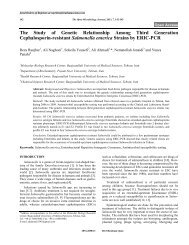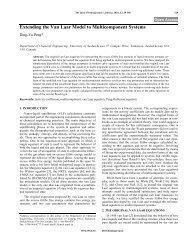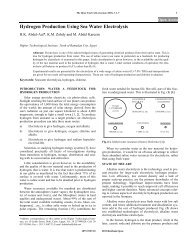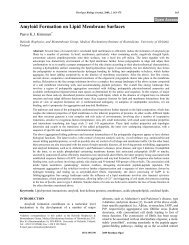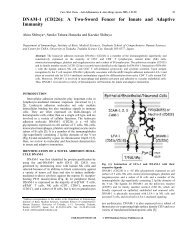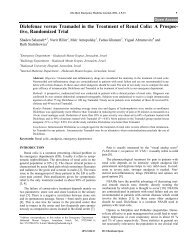Download - Bentham Science
Download - Bentham Science
Download - Bentham Science
Create successful ePaper yourself
Turn your PDF publications into a flip-book with our unique Google optimized e-Paper software.
128 Current Topics in Menopause Marco Stramba-Badiale<br />
prevention strategies [6]. Furthermore, efficacy and safety of cardiovascular<br />
therapy should be evaluated in clinical studies which enroll a significant<br />
proportion of women [7].<br />
EFFECTS OF SEX HORMONES ON THE CARDIOVASCULAR SYSTEM<br />
Cardiac receptors for estrogen, progesterone and androgens have been described<br />
in animals and humans, and their potential functional relevance has been<br />
demonstrated [8, 9]. It has been shown that sex hormones are involved in the<br />
transcription of hormone-sensitive genes such as NO synthases and that they<br />
interfere with various membrane-associated and cytoplasmic signalling pathways<br />
[8-10]. Experimental studies have also suggested that metabolites of estradiol<br />
exert direct effects on vascular cells [11], thus reducing infarct size and improving<br />
cardiac remodelling. Myocardial hypertrophy in female ovariectomized mice with<br />
aortic stenosis is reduced by estrogens administration [12]. It has been shown that<br />
polymorphisms in the gene that encodes the estrogen alpha receptor are associated<br />
with an increased rate of myocardial infarction in men and in women [9] and men<br />
with defects in this receptor develop early atherosclerosis [13].<br />
In women and men, estrogens induce fast vasodilation, improve endothelialmediated<br />
vasodilation, and modulate proliferation or apoptosis of vascular smooth<br />
muscle cells and endothelial cells. Endogenous estrogens also reduce adhesionmolecule<br />
expression and increase the synthesis of vascular endothelial growth<br />
factor, which promotes angiogenesis and stimulates re-endothelialization after<br />
injury [8, 10, 14]. It has been shown that estrogen increases NO synthesis by<br />
increasing the activity of endothelial NO synthase [9].<br />
Finally, endogenous, but not exogenous, estrogen inhibits angiotensinogen<br />
synthesis in the liver and angiotensin AT1 receptor expression in the myocardium,<br />
leading to an increased inhibition of the renin angiotensin system which may<br />
contribute to cardiovascular protection in premenopausal women [9].<br />
On the basis of these observations it is plausible that a reduction in sex hormones<br />
in postmenopausal women might be associated with detrimental effects on the<br />
cardiovascular system.


